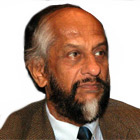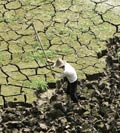 An interesting-looking series of posts has begun on the climate ethics blog of Penn State’s Rock Ethics Institute. The series plans to put the the climate change disinformation campaign under the ethical spotlight. The introductory post written by Associate Professor Donald Brown examines some of the broad issues before planned subsequent posts look at the detailed tactics employed to discredit the science. As I read the first post I was struck by how relevant its argument is across a much wider sector of society than that occupied by the ethically reprehensible disinformation campaign: it challenges the moral lethargy which seems to afflict many of the world’s governments and business communities when it comes to climate change. They may not be part of the organised denial of climate change, but their response as yet hardly reflects the gravity of the issue or faces up honestly to the ethical challenge it presents. I’ll extract or paraphrase some of Brown’s points which seemed to me to have relevance to our common need to face the moral imperative climate change brings with it.
An interesting-looking series of posts has begun on the climate ethics blog of Penn State’s Rock Ethics Institute. The series plans to put the the climate change disinformation campaign under the ethical spotlight. The introductory post written by Associate Professor Donald Brown examines some of the broad issues before planned subsequent posts look at the detailed tactics employed to discredit the science. As I read the first post I was struck by how relevant its argument is across a much wider sector of society than that occupied by the ethically reprehensible disinformation campaign: it challenges the moral lethargy which seems to afflict many of the world’s governments and business communities when it comes to climate change. They may not be part of the organised denial of climate change, but their response as yet hardly reflects the gravity of the issue or faces up honestly to the ethical challenge it presents. I’ll extract or paraphrase some of Brown’s points which seemed to me to have relevance to our common need to face the moral imperative climate change brings with it.
Continue reading “Climate ethics and the reckless endangerment of denial”

 An image that has lingered with me from all the reports of the Durban conference was the
An image that has lingered with me from all the reports of the Durban conference was the  The IPCC released the summary for policymakers of its Special Report on Managing the Risks of Extreme Events and Disasters to Advance Climate Change Adaptation (SREX) in Kampala, Uganda, on Friday (
The IPCC released the summary for policymakers of its Special Report on Managing the Risks of Extreme Events and Disasters to Advance Climate Change Adaptation (SREX) in Kampala, Uganda, on Friday (